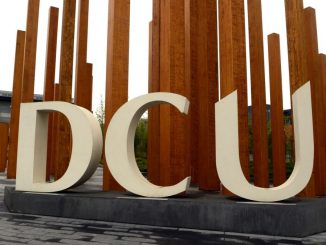
Some of both the proponents and opponents of Seanad abolition make big claims for the impact the abolition of Seanad Éireann would have.
Proponents say that it’s a radical reform of the political system, while opponents, particularly in the ‘Democracy Matters’ camp, talk of the Constitution being dismantled and of the ‘end of Irish democracy’.
Both propositions are nonsense.
I don’t think the referendum matters that much. We have a weak Seanad that does very little. Abolishing it won’t have a great impact one way or another.
Look at the opponents of change’s arguments.
They say it’s a power grab. If it is, you may as well grab fairy dust. The Seanad has very limited powers and has spent 75 years studiously avoiding using that little bit it has. If this is a plot to centralise power in the executive, it’s one that is built on a surprising ignorance of power in the Irish political system.
Proponents of the status quo say it will be a radical change to the constitution. They say this as if we must forever be beholden to Dev’s exercise in social thought: one straight out of the 1931 Papal Encyclical. It’s our constitution and we have the right to shape it to fit our changing needs.
In any case it’s not that big a change. Yes, the text of the constitution will look very different. However, if we paint a car a different colour it may look different however it will run the same way. Power isn’t going to be redistributed.
The retentionists say it will threaten some constitutional safeguards.
First remember the Seanad never stands up to the government. It only blocked the 1963 Pawnbrokers Bill because some senators got ‘lost’ (read drunk). Contrast this to the real power of the Dáil to bring down governments – something that it did as recently as 2011. The Dáil, because of its democratic nature, is responsive to voters in a way the Seanad never is.
As well as this, under the proposed changes basic constitutional safeguards are more robust. It will be much harder to remove judges, the C&AG, or the President. Now they need a super majority of the Dáil rather than a simple majority of both houses. This isn’t hard when the Upper House never stands up to the government.
There is also the argument about hearing alternative voices. Yes, when the Seanad was set up it provided important representation to a minority of Protestants in an otherwise Catholic-dominated state. Ireland, however, is now much more diverse and other voices are well represented in the Dáil.
The Dáil has voices as diverse as those of Leo Varadkar, Joe Higgins, John Lyons, Ming Flanagan, Lucinda Creighton, Shane Ross and Richard Boyd Barrett. We have plenty of diversity.
This country has ruined itself three times since Independence. The political system matters. We need to fix what’s broken. The Dáil and the government policy-making structures are. My fear is that if we keep the Seanad we’ll spend another few decades debating on Seanad reform. Meanwhile we’ll distract ourselves from the opportunity to reform what really matters.
To read Professor Gary Murphy’s case for a NO vote, click here.
Dr Eoin O’Malley teaches politics in the School of Law and Government.




Leave a Reply